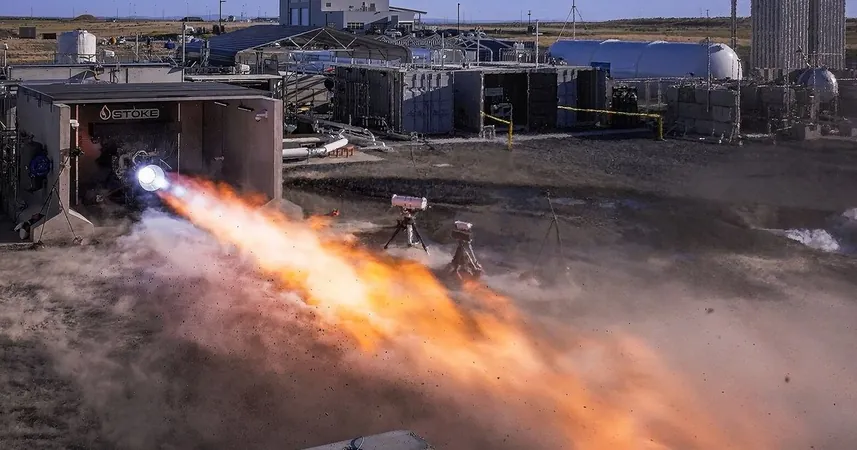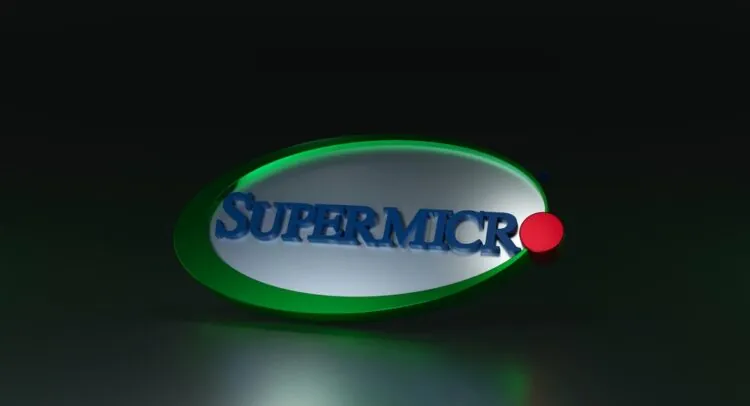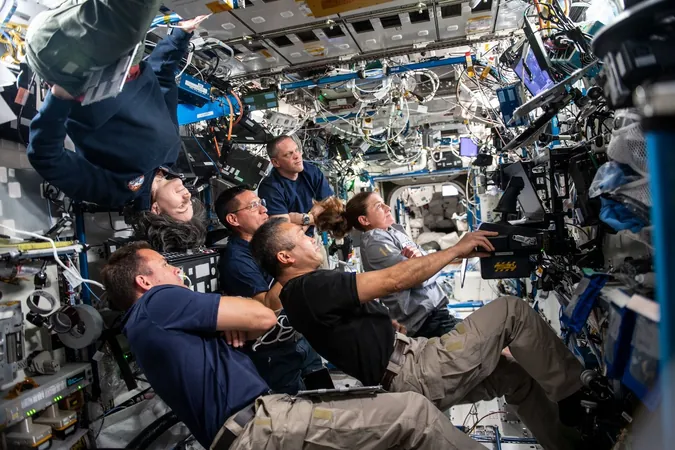
Kent's Rocket Revolution: Meet the Team Aiming for Daily Spaceflights!
2024-11-17
Author: Yan
Introduction
In an exciting development in the space industry, a pioneering company in Kent, Washington is on the verge of revolutionizing how we approach space travel. Stoke Space, co-founded by the ambitious Andy Lapsa and Tom Feldman, is working tirelessly to create fully reusable rockets designed for rapid launch and recovery. This project is being hailed as the “Holy Grail” of rocketry due to its game-changing potential for commercial spaceflight.
Rocket Assembly and Vision
Stoke Space is currently assembling rocket components at its spacious headquarters. Engineers are focused on two distinct engines that promise to make both the rocket's booster and upper stage reusable, significantly reducing costs and making space more accessible for commercial ventures. Lapsa envisions a future where rockets can launch into orbit, return home, and be ready for another flight the very next day.
Upcoming Launch Plans
The company has set its sights on completing its initial rocket launch from Cape Canaveral, Florida, scheduled for late next year. Although this first launch will be a one-time-use rocket, plans are already underway to achieve the coveted reuse capability within the subsequent year.
Testing Site and Innovations
As they design their ultimate rocket, Stoke Space has established a testing site at Moses Lake in Central Washington, where engineers are testing engine prototypes. The testing facilities, lavishly situated in a vast desert environment, are equipped with cutting-edge technology including tall white fuel tanks storing liquid hydrogen and oxygen. These components play a crucial role in developing their rocket engines, which aim for unprecedented efficiency and reliability.
Unique Engine Design
Among their innovations is a unique "ring-of-fire" engine design that promises to power the second stage of their rocket. Engineer Sophia Yu has described the engine as “one of the coolest things” she has ever encountered. It features an elaborate system of thrusters located around a protective heat shield that enables controlled descents, a significant leap forward in safety and functionality.
Team Background and Funding
The team at Stoke is confident in their engineering prowess, drawing upon their experiences from industry leaders such as Blue Origin, where both Lapsa and Feldman began their journey. Their shared passion sparked Stoke Space in 2019, and since then, they have successfully raised over $185 million in venture capital to fund their ambitious projects.
Growth and Workforce Diversity
Currently employing about 160 staff members, Stoke Space is preparing for significant growth, with plans to double its workforce next year. The dynamic atmosphere of their headquarters reflects a youthful and diverse culture, which is becoming increasingly welcoming to women in an industry long dominated by men.
Engineering and Manufacturing Techniques
Stoke's structures are meticulously engineered using thin-walled, stainless steel that allows for maximum efficiency during aerodynamics. Their innovative manufacturing techniques, including the use of 3D printing, enable them to create complex engine components with precision.
Industry Context
The space industry in the Pacific Northwest is thriving, with companies like Blue Origin and mission-critical projects such as Amazon’s Project Kuiper and SpaceX’s Starlink springing up in the region. Stoke Space represents the latest in this rapidly evolving field, with approximately 13,000 employees currently in the sector, and 1,500 job openings available.
Vision for the Future
Lapsa expresses his vision boldly: "You wouldn’t throw a 737 away at the end of every flight. It’s silly to do the same for rockets.” This philosophy underscores their mission to establish a reliable and cost-effective means of space access, which they believe is essential for future endeavors such as asteroid mining, orbital manufacturing, and even military logistics.
Conclusion
While visions of human colonies on Mars remain ambitious, Lapsa asserts confidence in realizing these goals by laying the groundwork for routine access to space. With challenges ahead, the team is committed to pushing the boundaries of what is possible in aerospace technology. As Stoke Space gears up for the future, the team remains enthusiastic, united by a shared dream of making space travel as commonplace as air travel, paving the way for an innovative and exciting future beyond our planet!




 Brasil (PT)
Brasil (PT)
 Canada (EN)
Canada (EN)
 Chile (ES)
Chile (ES)
 España (ES)
España (ES)
 France (FR)
France (FR)
 Hong Kong (EN)
Hong Kong (EN)
 Italia (IT)
Italia (IT)
 日本 (JA)
日本 (JA)
 Magyarország (HU)
Magyarország (HU)
 Norge (NO)
Norge (NO)
 Polska (PL)
Polska (PL)
 Schweiz (DE)
Schweiz (DE)
 Singapore (EN)
Singapore (EN)
 Sverige (SV)
Sverige (SV)
 Suomi (FI)
Suomi (FI)
 Türkiye (TR)
Türkiye (TR)